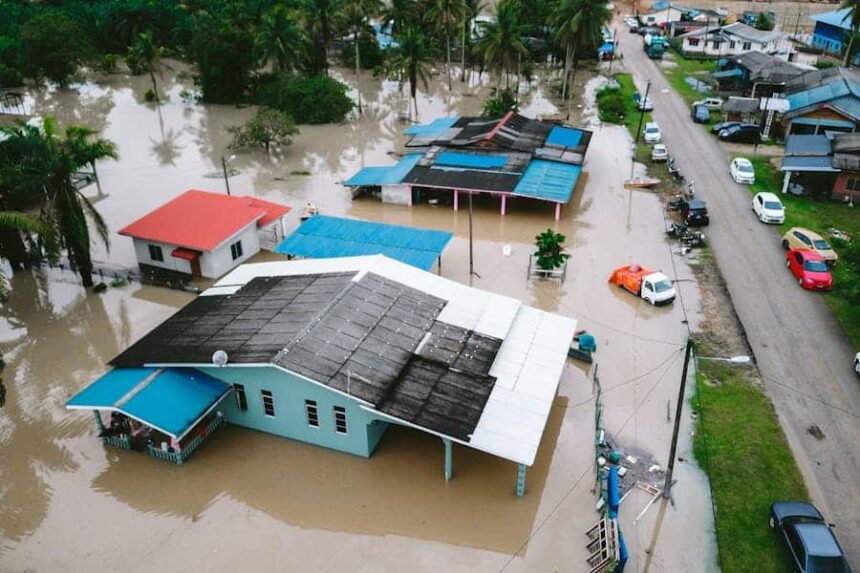Natural disasters are becoming more frequent and severe, leading to extensive loss of life, destruction of infrastructure, and displacement. As a critical line of support, non-governmental organizations (NGOs) are essential in delivering timely, effective assistance. However, despite their significant role, NGOs often face challenges that can limit their impact, from logistical hurdles to insufficient coordination.
- Investing in Training and Capacity Building for Lasting Success
- Leveraging Technology for Real-Time Communication and Coordination
- Creating Clear and Effective Response Protocols
- Supporting Mental Health Needs in Disaster-Stricken Communities
- Using Data to Guide Decision-Making During Disasters
- Creating a Reliable Supply Chain for Essential Goods
- Conducting Regular Drills to Prepare for Real-World Scenarios
The good news is that there are several ways NGOs can improve their disaster response strategies. By adopting practical measures, from building local partnerships to investing in well-trained professionals, NGOs can make their disaster response more resilient, effective, and community-focused.
This article explores ways NGOs can enhance their disaster response efforts, ensuring they are prepared to make the most positive impact during times of crisis.
Investing in Training and Capacity Building for Lasting Success
Training and capacity building are essential for empowering NGO teams and volunteers to respond effectively to disasters. NGOs must invest in equipping their staff with the skills needed to navigate high-stress disaster scenarios, from logistics management to basic first aid and search-and-rescue techniques. Training is crucial because, during disasters, every minute counts, and well-prepared teams can make quick, life-saving decisions.
One significant aspect of this strategy involves hiring trained professionals, especially those who have pursued a masters in disaster management online. Such individuals bring specialized expertise, from risk assessment to strategic response planning, and can play a vital role in preparing for and responding to complex disaster scenarios. Online master’s programs in disaster management offer a deep understanding of disaster response protocols and enable professionals to apply academic knowledge directly in the field. By recruiting such qualified individuals, NGOs can build a skilled team that is capable of handling the unique challenges presented by disasters.
Leveraging Technology for Real-Time Communication and Coordination
Technology has revolutionized disaster response, providing tools for NGOs to communicate and coordinate relief efforts more effectively. During disasters, technology allows real-time information sharing, which is essential for coordinating between various response teams and external organizations. Using communication platforms, mobile apps, and even social media, NGOs can update the public, interact with other relief teams, and gather crucial information from affected individuals.
For instance, drones can survey hard-to-reach disaster areas, while GPS technology aids in mapping affected regions, helping NGOs track supplies and personnel effectively. Similarly, mobile communication apps ensure constant contact between team members, facilitating swift and organized responses. Technology also enhances transparency, as NGOs can use it to inform donors and stakeholders about the ongoing relief efforts, fostering accountability and trust.
Creating Clear and Effective Response Protocols
Having clear and effective response protocols in place can significantly improve an NGO’s disaster response. Well-defined protocols eliminate confusion, allowing teams to act swiftly and efficiently when a disaster strikes. These protocols typically outline steps for resource mobilization, communication procedures, and safety measures, guiding teams through each stage of disaster response.
Clear protocols are especially valuable in high-pressure situations, where quick decisions are essential. By following an established plan, NGO workers can avoid common pitfalls like duplicated efforts or missed communication, which can slow down or compromise relief efforts. Moreover, protocols make it easier for different teams, including those from partner organizations, to work together cohesively, maximizing the impact of the response.
Supporting Mental Health Needs in Disaster-Stricken Communities
In the aftermath of a disaster, physical aid alone is not enough. The trauma of losing loved ones, homes, and livelihoods can leave a lasting psychological impact on affected individuals. Addressing mental health needs should therefore be a priority in disaster response. NGOs can provide psychological support by training staff in trauma response or partnering with mental health professionals who specialize in post-disaster recovery.
Mental health support can be offered through counseling, setting up safe spaces for survivors to share their experiences, and providing resources to help people manage stress and anxiety. This type of care helps foster resilience, enabling communities to recover and rebuild more effectively. NGOs that make mental health part of their disaster response not only address immediate needs but also contribute to long-term healing, which is vital for individuals to regain stability and hope after a crisis.
Using Data to Guide Decision-Making During Disasters
Data is one of the most powerful tools NGOs can leverage to make effective decisions during disaster response. By collecting and analyzing data in real-time, NGOs gain valuable insights that allow them to allocate resources, prioritize needs, and identify areas requiring immediate assistance. This data can include everything from the number of displaced individuals to the availability of food, water, and shelter. It also helps NGOs identify trends, such as which areas are most affected or which types of aid are in high demand.
Data-driven decision-making ensures that NGOs act based on the specific needs of each situation rather than relying on assumptions. Additionally, NGOs can use data to assess the impact of their efforts, allowing for better planning and response in future crises. For example, feedback gathered from affected communities can help NGOs fine-tune their approach, ultimately improving the quality and speed of their aid delivery.
Creating a Reliable Supply Chain for Essential Goods
Ensuring a steady supply of essentials—like food, water, medicine, and shelter materials—is a crucial component of any effective disaster response. NGOs must establish a robust and reliable supply chain to deliver these essential goods to affected areas, often under challenging circumstances. This means having trusted suppliers, pre-established inventory, and efficient distribution channels that can be activated at a moment’s notice.
NGOs can partner with local businesses, international suppliers, and government agencies to maintain a stockpile of resources that can be quickly dispatched during emergencies. Additionally, a well-organized supply chain minimizes waste and prevents shortages, ensuring that relief efforts are not disrupted. By investing in a reliable supply chain, NGOs can address immediate needs more effectively, preventing secondary crises like food insecurity or disease outbreaks that often arise after disasters.
Conducting Regular Drills to Prepare for Real-World Scenarios
Preparedness is key to effective disaster response, and one of the best ways for NGOs to enhance readiness is by conducting regular drills and simulations. Drills mimic real-world disaster scenarios, allowing teams to practice their roles and refine their response protocols in a controlled setting. These exercises reveal potential gaps in communication, logistics, and coordination, which NGOs can address before an actual disaster occurs.
Through simulations, NGOs also ensure that both staff and volunteers remain calm and composed during high-stress situations, as they become familiar with the steps involved in response efforts. Regular drills contribute to a proactive culture within NGOs, promoting continuous improvement and allowing teams to respond confidently and effectively when faced with real crises.
Improving disaster response requires ongoing dedication, adaptability, and a focus on learning from past experiences. NGOs play a crucial role in providing aid and support during times of crisis, and by implementing strategies like building local partnerships, investing in technology, prioritizing data-driven decisions, and maintaining transparency, they can significantly increase their effectiveness. Preparedness is key, and NGOs that continuously work to enhance their approach can better meet the needs of affected communities, mitigate suffering, and ultimately save lives.




